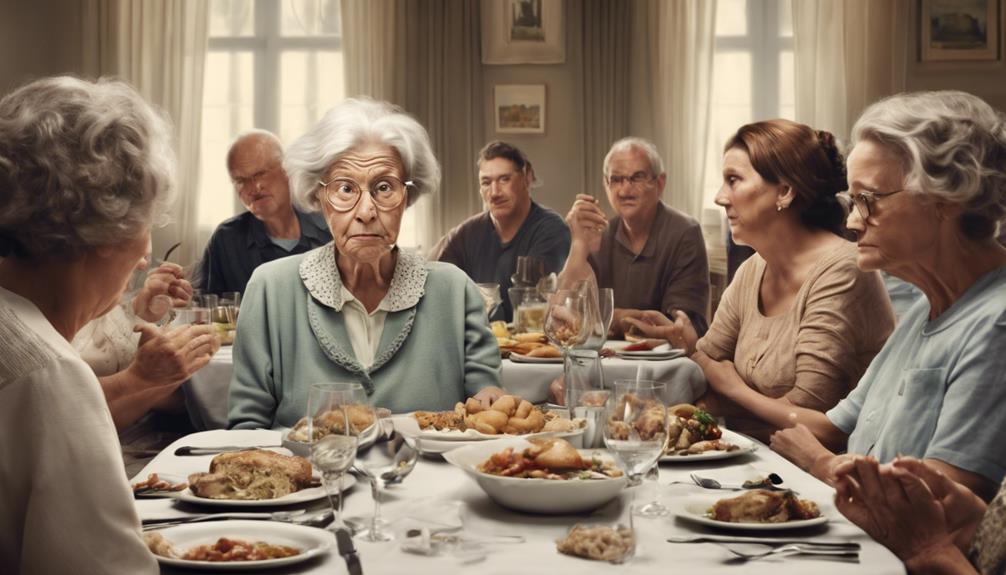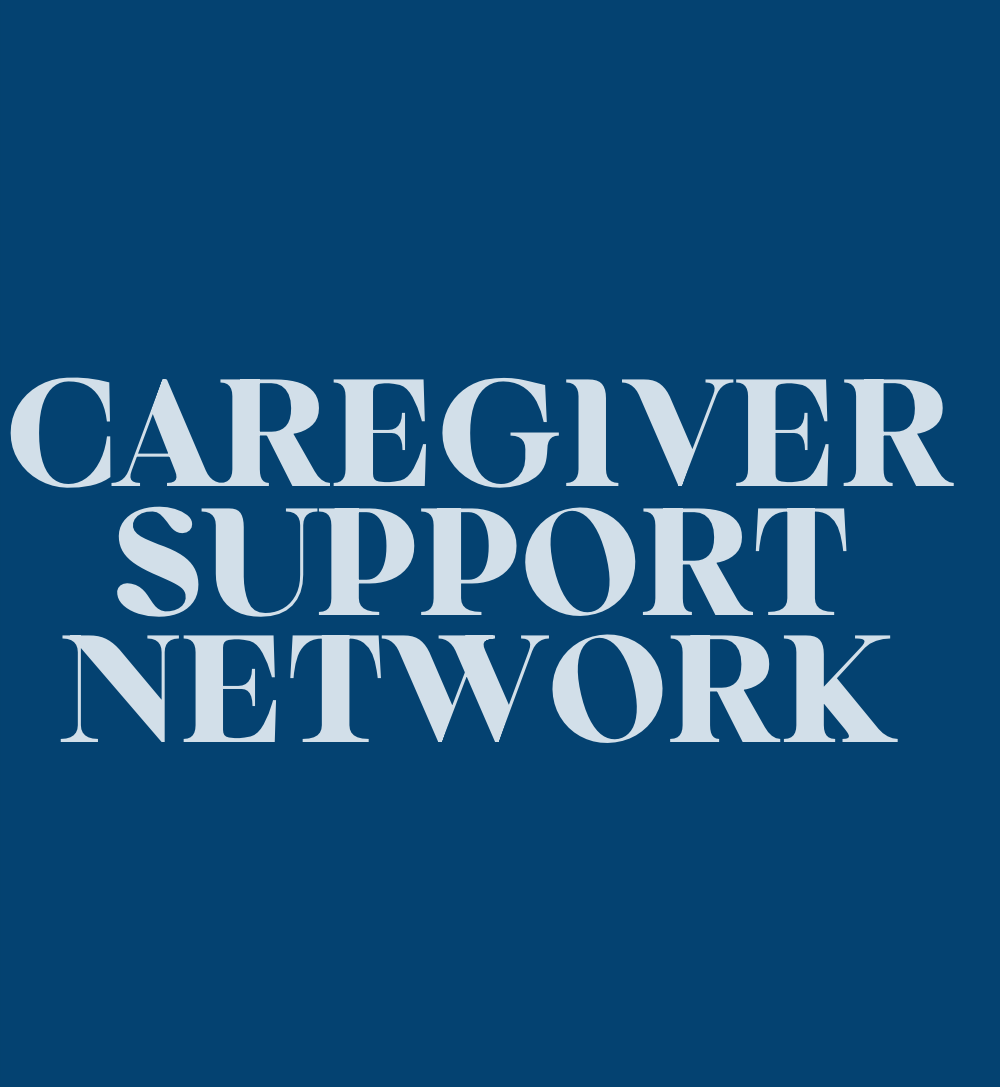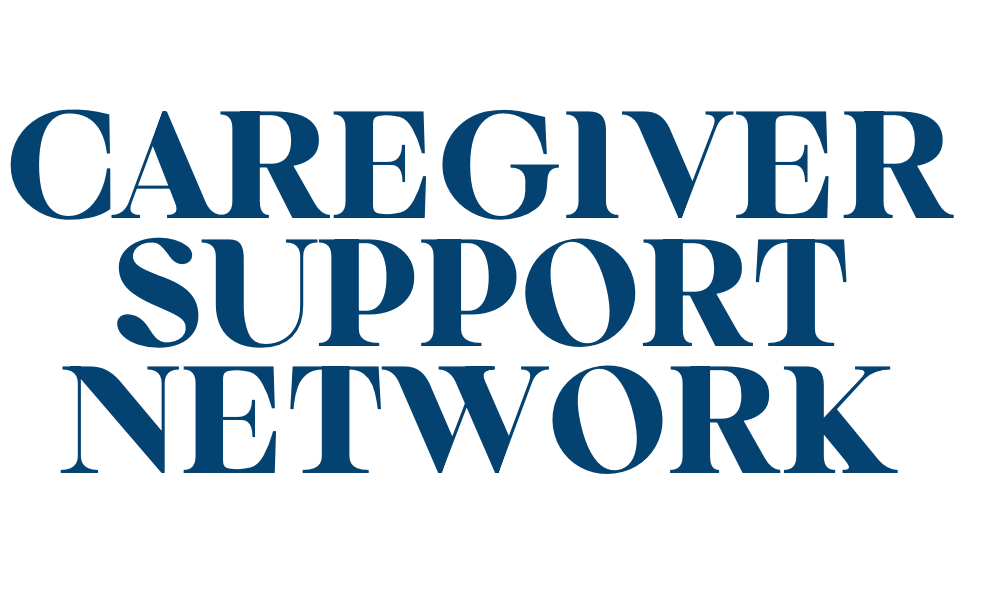Caregiver Support
Baby Boomers as Caregivers of Today
Maneuvering through the challenges of caregiving, baby boomers face a delicate balancing act – but what strategies can help them stay afloat?

Currently, as baby boomers assume the responsibilities of caregivers, they resemble jugglers attempting to keep multiple balls in the air at once. This caregiving burden impacts not only the health of the people they care for but also their own personal health and wellness.
But what strategies can they employ to ensure their own care while tending to others? Let's explore the unique challenges and support systems available for baby boomers in this vital caregiving role.
Key Takeaways
- Baby Boomers face financial strain due to caregiving expenses.
- Emotional toll on Baby Boomer caregivers increases risks of mental health issues.
- Balancing work with caregiving poses challenges for Baby Boomers.
- Tailored support services are crucial for Baby Boomer caregivers' well-being.
Demographic Trends in Baby Boomer Caregiving
In our exploration of the demographic trends in Baby Boomer caregiving, it becomes evident that one in four Baby Boomers currently serves as a caregiver in the United States. This statistic showcases the significant role that Baby Boomers play in providing care to their loved ones.
Among these caregivers, a substantial 61.7% are women, highlighting the essential caregiving contributions made by females within this demographic group. Additionally, the majority of Baby Boomer caregivers identify as White, with 74% aligning themselves with this racial category.
It is noteworthy that more than half of Baby Boomer caregivers have been undertaking their caregiving responsibilities for a minimum of two years, demonstrating a profound long-term commitment to supporting their care recipients. Moreover, over a quarter of these caregivers dedicate more than 20 hours per week to caregiving duties, emphasizing the substantial time investment required in fulfilling their caregiving roles.
These demographic trends underscore the vital role that Baby Boomers play in the caregiving landscape of the United States.
Challenges Faced by Baby Boomer Caregivers

Navigating the complex landscape of caregiving, Baby Boomer caregivers encounter a myriad of challenges that impact various aspects of their lives.
- Financial Strain: Many Baby Boomer caregivers face financial difficulties due to the expenses associated with caregiving. The costs of medications, medical appointments, and specialized care can quickly add up, creating a significant burden on their finances.
- Emotional Toll: The emotional toll of caregiving can be overwhelming for Baby Boomers, leading to increased risks of depression and anxiety. Witnessing the decline in their loved one's health, managing challenging behaviors, and coping with the uncertainty of the future can take a heavy emotional toll on caregivers.
- Lack of Support: Baby Boomer caregivers often experience isolation and a lack of support, further exacerbating their challenges. Feeling alone in their caregiving journey can impact their overall well-being and make it harder to cope with the demands of caregiving while maintaining a healthy work-life balance.
Impact on Baby Boomers' Health and Well-Being
Facing the demands of caregiving while managing our own health and well-being, Baby Boomer caregivers navigate a delicate balance that often takes a toll on our physical and emotional resilience. With a higher prevalence of chronic health conditions such as arthritis, asthma, and COPD, 63% of us have one or more chronic illnesses, leading to lower self-rated health and increased disability.
Balancing caregiving responsibilities with work can result in significant physical and emotional health challenges, as 15% of us report frequent mental distress, highlighting the impact on our overall well-being. Consistent breaks from caregiving and effective self-care practices are crucial for maintaining our health and emotional stability.
Striving for a better work-life balance is essential to ensure that we can continue to provide care while also taking care of ourselves. Prioritizing our well-being through self-care practices and seeking support when needed are vital steps in managing the challenges of being both a caregiver and a person with our health needs.
Support Resources for Baby Boomer Caregivers

Support resources for Baby Boomer caregivers encompass a range of services provided by local Area Agencies on Aging, offering essential assistance and connections to help navigate the challenges of caregiving. These agencies play a crucial role in supporting caregivers through various means:
- Caregiver Support Services: Local agencies provide a wide array of caregiver support services, including counseling, educational resources, and access to support groups, tailored to meet the unique needs of baby boomer caregivers.
- Respite Care: Offering much-needed breaks for caregivers, respite care services provided by these agencies allow caregivers to take time for themselves, recharge, and prevent burnout.
- Caregiver celebration days: Organizing special events to honor and recognize the dedication of baby boomer caregivers, these celebration days provide a sense of appreciation and support for their selfless efforts.
Future Outlook for Baby Boomer Caregivers
As the demand for caregiving services escalates with the growing population of older adults, the future outlook for baby boomer caregivers necessitates proactive strategies and robust support systems to navigate the impending challenges ahead.
The number of older adults in need of care is projected to increase significantly, potentially overwhelming the existing caregiver workforce. To support the aging baby boomer caregiver cohort, public health initiatives are crucial in strengthening and bolstering the caregiver workforce.
Plans must be put in place to address the specific needs of aging baby boomers and their caregivers effectively. Tailored support initiatives are essential to cater to state-level variations in caregiver services and outcomes.
Looking ahead, it's imperative to consider the future outlook of the caregiver workforce, the evolving needs of older adults, and the importance of implementing proactive measures and tailored support systems to ensure the well-being of both caregivers and care recipients in the face of these impending challenges.
Frequently Asked Questions
How Do the Baby Boomers Affect Us Today?
Baby boomers affect us today in profound ways through their diverse experiences, valuable insights, and lasting contributions. Their influence spans various aspects of society, from culture and economics to healthcare and technology.
As a generation, we appreciate the wisdom and perspective they bring, enriching our communities and shaping our collective future. Their impact resonates across generations, fostering connections and understanding that shape our world for the better.
How Are Baby Boomers Affecting Healthcare?
We see baby boomers shaping healthcare in various ways. Their growing needs and expectations are driving innovations in services and technologies. They're advocating for more personalized care and better access to resources.
As a result, healthcare providers are adapting to meet their demands and preferences. Baby boomers are influencing the industry to prioritize patient-centered approaches and improve overall quality of care. Their impact on healthcare continues to evolve, driving positive changes for all.
When Should You Stop Being a Caregiver?
When caregiving starts to significantly impact our own well-being and health, it's crucial to recognize the signs and consider seeking support.
Setting boundaries and prioritizing self-care is essential to prevent caregiver strain. Knowing when to step back from caregiving is a personal decision that should prioritize our quality of life.
It's important to listen to our bodies and emotions, and seek help when needed to ensure we can continue to care for others effectively.
What Did Baby Boomers Contribute to Society?
Baby Boomers contributed to society in profound ways. Their impact spans cultural, social, and political realms, driving change in civil rights, women's rights, and various movements.
They were pioneers in technology, business, and the arts, shaping modern industries. Their advocacy for social justice and equality left a lasting legacy on healthcare, education, and the economy.
Baby Boomers have truly made a mark on society through their activism and innovation.
Conclusion
In conclusion, as baby boomer caregivers, we must prioritize our own well-being while caring for our loved ones. It's crucial to seek support, take breaks, and practice self-care to maintain our health and happiness.
Remember, Rome wasn't built in a day, and neither is the journey of caregiving. Let's embrace the challenges, seek out resources, and continue to support each other as we navigate this fulfilling yet demanding role.
Together, we can thrive and find balance in our caregiving journey.
Caregiver Support
7 Ways to Grieve the Loss of Your Father
Leverage these 7 strategies to gracefully navigate the grieving process after losing your father, and discover the healing power of honoring his memory.

To grieve the loss of your father, acknowledge his passing, embrace your emotions, seek support from family, care for yourself, preserve memories, honor his legacy, and allow time to heal. Acknowledge the loss by recognizing the reality and feelings that come with it. Express emotions openly and seek comfort from loved ones. Take care of yourself through self-care practices like journaling and mindfulness. Preserve memories by creating keepsakes or traditions. Honor his legacy by sharing stories and considering charitable gestures. Remember, healing takes time and self-compassion. Find out more ways to navigate this journey.
Key Takeaways
- Seek support from family and friends for comfort and guidance.
- Express emotions openly and engage in self-care practices.
- Preserve memories by creating a memory box or scrapbook.
- Consider creating a lasting tribute in his honor.
- Allow yourself time to heal and embrace a range of emotions.
Acknowledge the Loss
We must confront the reality of our father's passing in order to begin the process of grieving. The loss of a father is a significant experience that can evoke a range of emotions, including grief, sadness, and even anger. It's essential to acknowledge and accept these feelings as a natural response to the loss.
Each individual's experience of grief is personal and unique, influenced by their relationship with their father and their own coping mechanisms. Seeking support from loved ones, friends, or professionals can provide a valuable source of comfort and guidance during this challenging time.
Acceptance of the loss is an important step in the grieving process, allowing us to gradually come to terms with the reality of our father's absence. By recognizing our emotions and reaching out for support, we can navigate through the grieving process with greater resilience and understanding.
Express Your Emotions

Frequently expressing our emotions openly and honestly can aid in the processing of grief following the loss of a father. It is essential to find healthy ways to work through feelings and honor your father's memory. Here are some therapeutic ways to express your emotions after losing a parent:
| Therapeutic Ways | Description |
|---|---|
| Sharing Memories | Reflect on and share fond memories, stories, and feelings about your father with others. |
| Journaling | Write in a journal to express your emotions, thoughts, and memories privately. |
| Art Therapy | Use art as a creative outlet to process your grief and honor your father through creativity. |
| Grief Support Group | Join a support group to connect with others who understand your experience and provide a safe space to share your feelings. |
Engaging in these activities can offer emotional relief and contribute to a healthy grieving process. Remember that it's okay to express yourself in various ways, whether through tears, laughter, screams, or moments of silence.
Seek Support From Loved Ones
Reaching out to family and friends for emotional support can be an important step in maneuvering the grieving process after the loss of your father. Sharing your feelings with loved ones can provide comfort during this difficult time. By opening up about your emotions, you allow others to offer their support, creating a space where you can process grief together.
Talking about memories and stories of your father with family members can help keep his memory alive and strengthen the emotional connection between all of you. In times of loss, seeking support from family members who are also grieving can foster a sense of unity and understanding. Engaging in activities or rituals with your family to honor your father's memory can create a supportive environment for processing grief collectively.
Accepting help and comfort from your loved ones can alleviate feelings of isolation and loneliness. Remember, you aren't alone in this journey, and leaning on your family members for support can make the grieving process more bearable.
Engage in Self-Care Practices

To prioritize our mental health and well-being during the grieving process, it's crucial to engage in self-care practices that promote daily mindfulness. This can include activities like meditation, deep breathing exercises, or simply taking a moment to appreciate the present.
Prioritize Mental Health
Engage in self-care practices such as meditation, exercise, and journaling to prioritize your mental health while grieving the loss of your father. To support your mental well-being during this challenging time, consider the following:
- Seek professional therapy: Talk to a counselor or therapist to address your emotions and receive tailored support.
- Practice mindfulness: Use techniques like deep breathing or meditation to reduce stress and anxiety.
- Join support groups: Connect with others who understand your experience and can offer valuable insights.
- Prioritize sleep and nutrition: Make sure you're getting adequate rest and nourishing your body properly.
- Engage in regular physical activity: Exercise can help boost your mood and overall well-being.
Practice Daily Mindfulness
To further enhance our well-being while mourning the loss of our father, incorporating daily mindfulness practices can be grounding and beneficial. Engaging in self-care activities like meditation, deep breathing, or yoga can help manage grief and reduce stress levels.
It's essential to create a routine that includes self-care rituals such as skincare routines, reading a book, or taking walks in nature to provide comfort and stability during this challenging time. Exploring therapeutic outlets like painting, cooking, or gardening can serve as a means for processing grief and finding moments of joy and relaxation.
Connecting with a support system or therapist to incorporate self-care into our grieving process can greatly enhance emotional well-being and resilience. Let's prioritize our mental health by embracing daily mindfulness practices and self-care activities.
Preserve Cherished Memories

To preserve cherished memories of your father, consider creating a memory box filled with his belongings, photos, and letters.
You can also compile a scrapbook or photo album capturing special moments and experiences you shared with him.
Another idea is to record his voice or create a video montage to revisit his words of wisdom and love.
Memory Collage Creation
Creating a memory collage with photos and mementos is a meaningful way to preserve cherished memories of your father. This therapeutic activity not only helps you process emotions but also serves as a beautiful remembrance of your loved one.
Here are some tips for creating a memory collage:
- Include special items like his favorite belongings or handwritten notes in the memory collage.
- Display the memory collage in a prominent place at home to honor and remember your father.
- Add significant dates, quotes, or symbols that represent your father to add personal meaning.
- Engage in creating the memory collage as a therapeutic activity to process the emotions of grief and remembrance.
Memory Box Compilation
Preserving cherished memories of your father can be achieved through the creation of a memory box, compiling items that hold significant meaning and remind you of him. Include photographs, letters, trinkets, and other memorabilia in the memory box to preserve special memories. Label each item with a short description or its significance in relation to your father. Keep the memory box in a safe and accessible place for easy revisiting, fostering a sense of connection with your father. This tangible reminder of his presence can provide comfort during the grieving process. Below is a table to guide you in selecting items for your memory box:
| Item | Description | Significance |
|---|---|---|
| Photographs | Capturing special moments | Cherished memories |
| Letters | Words of love and wisdom | Emotional connection |
| Trinkets | Small tokens of significance | Reminders of his presence |
| Memorabilia | Items from shared experiences | Nostalgic comfort |
Memory Video Montage
Compiling a memory video montage is a heartfelt way to preserve and honor cherished memories of your father. Include photos, videos, and meaningful moments in the montage to compile a touching tribute. Utilize editing software or online tools to customize the video with music and captions, adding a personal touch.
Share the memory video with family and friends to celebrate your father's life together, fostering a sense of unity and remembrance. Watching the memory video can evoke positive emotions and provide comfort during the grieving process, offering a source of solace and connection.
Create a lasting tribute that not only honors your father's memory but also serves as a reminder of the love and joy he brought into your life.
Honor Your Fathers Legacy

To honor your father's legacy, consider creating a memory book or journal filled with stories, quotes, and memories that reflect his impact on your life. This tangible collection can serve as a cherished keepsake, allowing you to revisit special moments and remember the lessons he imparted.
In addition, compiling a playlist of songs that remind you of your father can evoke emotions and provide comfort during challenging times. Starting a tradition in his honor, like engaging in his favorite pastime or visiting a place he treasured, can be a meaningful way to pay tribute to his memory.
Sharing stories about your father with loved ones helps keep his spirit alive and allows others to celebrate his life alongside you. Moreover, considering the creation of a charitable foundation, scholarship, or donation in his name can perpetuate his legacy of giving back to the community.
These actions not only honor your father's memory but also contribute to a positive impact on others, ensuring that his influence continues to be felt for years to come.
Allow Yourself Time to Heal

Reflecting on our grief journey after the loss of a father, it's important to allow ourselves the necessary time to heal and process our emotions. Healing from this profound loss is part of the grieving process, and it's vital not to rush this emotional journey. To navigate this challenging time with mastery, consider the following:
- Give yourself permission to feel a range of emotions as you mourn the loss.
- Understand that healing is a gradual journey, and it's okay to seek support along the way.
- Allow yourself space to reflect on memories and emotions associated with your father.
- Embrace self-compassion and patience as you navigate the healing process.
- Remember to grant yourself the permission to feel and the space to mourn.
Frequently Asked Questions
How Do I Overcome the Death of My Dad?
When facing the death of a father, we can overcome by acknowledging our emotions, seeking support from loved ones or professionals, and honoring his memory through activities and rituals.
Expressing our feelings through writing, art, or communication can be beneficial. Reflecting on positive memories with our dad can aid in moving forward.
It's important to allow ourselves to grieve in our unique ways and remember that healing takes time.
What Are the 3 C's of Grief?
The 3 C's of grief, which stand for 'can't control it, can't cure it, can't change it,' highlight the importance of acceptance and focusing on manageable aspects. Embracing these principles empowers individuals to navigate the grieving process effectively.
How Can I Be Happy After My Dad Dies?
We can find happiness after losing a father by cherishing joyful memories, engaging in comforting activities, seeking support, allowing ourselves to feel various emotions, and prioritizing self-care. These steps help navigate the grieving process and foster moments of joy amid sorrow.
Embracing a range of feelings and building a strong support system contribute to healing and finding happiness during this difficult time. Remember, it's okay to seek help and prioritize your well-being.
Why Does Losing Your Dad Hurt so Much?
Losing your dad hurts deeply due to the profound emotional bond and unique connection shared. Fathers often provide support, guidance, and love, making their absence keenly felt. The role of protector and provider they hold intensifies the impact of their loss.
Feelings of abandonment, loneliness, and missing a foundational figure arise. Memories of experiences and laughter together amplify the emotional void left.
Conclusion
To sum up, grieving the loss of a father can be a challenging journey. Remember to acknowledge the loss, express your emotions, seek support, practice self-care, preserve memories, honor his legacy, and allow yourself time to heal.
These steps may not erase the pain, but they can help you navigate through the grieving process with grace and resilience. Stay strong, seek help when needed, and remember that healing takes time.
Albert brings a wealth of knowledge and expertise to our writing team. With a background in caregiving and a deep understanding of the challenges faced by caregivers, Albert’s writing resonates with authenticity and empathy. He is committed to delivering high-quality content that empowers and supports caregivers on their journey.
Caregiver Support
10 Early Signs of Alzheimer's You Shouldn't Ignore
Beware of the 10 early signs of Alzheimer's that could be affecting your loved ones – discover what they are and why they shouldn't be ignored.

We should pay attention to 10 early signs of Alzheimer's. 1. Memory loss affecting daily life includes forgetting important events or asking the same questions. 2. Challenges in problem-solving show difficulties in managing responsibilities. 3. Difficulty completing tasks like cooking can indicate Alzheimer's. 4. Essential with time or place is vital to address promptly. 5. Trouble with visual images can affect driving ability. 6. Forgetful behaviors include misplacing keys. 7. Losing important documents is a sign to watch out for. 8. Misplacing belongings can signify cognitive decline. 9. Impaired judgment may lead to risky decisions. 10. Social withdrawal could hint at Alzheimer's. Stay informed for more insights.
Key Takeaways
- Memory loss affecting daily life, like forgetting important events or relying on memory aids.
- Challenges in problem-solving, such as difficulties in managing daily responsibilities.
- Trouble completing tasks, struggling with routine activities like cooking.
- Confusion with time or place, forgetting familiar routes or struggling with the day of the week.
- Forgetful behavior, like misplacing keys or important documents.
Memory Loss Affecting Daily Life
Experiencing memory loss affecting daily life can be a concerning early sign of Alzheimer's. Forgetting important dates, events, or constantly asking the same questions are warning signs that shouldn't be overlooked. If you find yourself increasingly relying on memory aids or family members to recall information, it could be an indicator of a more serious issue.
Difficulty retaining new information and frequent forgetfulness can disrupt daily routines, making simple tasks challenging. Struggling to recall recently learned information or forgetting appointments are common symptoms that may point to Alzheimer's. Memory changes that interfere with daily life, like forgetting recent conversations, are key indicators that should prompt further evaluation.
Paying attention to these signs and seeking medical advice if you or a loved one experiences persistent memory issues impacting daily activities is crucial. Early detection and intervention can make a significant difference in managing Alzheimer's and improving quality of life.
Challenges in Problem-Solving

Noticing difficulties in solving familiar problems or planning tasks can signal the onset of Alzheimer's disease, particularly when it comes to managing daily responsibilities. For individuals experiencing challenges in problem-solving, tasks that were once routine may become increasingly complex. Following a recipe or organizing finances could present unexpected hurdles, indicating changes in cognitive function. These alterations in the ability to develop and execute plans might be observed by those close to the individual, such as family members or caregivers.
As these challenges in problem-solving persist, they can hinder one's capacity to complete daily tasks autonomously. This difficulty can have a significant impact on independence, affecting the individual's ability to engage in activities essential for daily living. Recognizing and addressing these early signs of Alzheimer's disease is vital in preserving quality of life and seeking appropriate support and interventions to maintain independence for as long as possible.
Difficulty Completing Tasks
Struggling to complete everyday tasks like cooking or managing finances can serve as an important indicator of Alzheimer's disease. Memory changes, such as forgetting familiar recipes or how to pay bills, can be distressing. Changes in mood or behavior may also accompany difficulty completing familiar tasks, making it essential to seek help.
Challenges in managing finances, like forgetting to pay bills or struggling to understand expenses, can be signs of cognitive decline. Judgment or decision-making may be affected, leading to difficulties in organizing daily activities or following instructions. If you find yourself needing more reminders or assistance with tasks that were once easy, it's vital to consult a healthcare professional.
Difficulty completing tasks that were once routine, such as playing a favorite game or operating household appliances, shouldn't be ignored. Early detection and intervention can help manage the symptoms and improve quality of life for those experiencing these challenges.
Confusion With Time or Place

Confusion with time or place is a significant early indicator of Alzheimer's disease. Memory loss or disorientation related to time and place can be warning signs that shouldn't be overlooked. Forgetting familiar routes, becoming lost in familiar places, or struggling to remember the day of the week are all concerning signs that may point to Alzheimer's disease. Individuals experiencing these symptoms may also find it challenging to recognize familiar surroundings or may feel disoriented even in places they know well.
These signs of Alzheimer's-related confusion with time or place can have a significant impact on daily activities and safety. It's essential to pay attention to these early indicators and seek medical advice if you or a loved one is experiencing such difficulties. Addressing these symptoms promptly can help in getting a proper diagnosis and initiating appropriate care and support. Remember, early detection and intervention are vital in managing Alzheimer's disease effectively.
Trouble With Visual Images
Experiencing difficulties with visual images can serve as an early warning sign of Alzheimer's disease, impacting spatial awareness and coordination. Changes in how we perceive and interpret visual information may signal underlying cognitive challenges.
Here are some key points to keep in mind:
- Challenges with spatial awareness: Alzheimer's can cause difficulties in judging distances or colors, affecting tasks like driving or finding one's way in familiar places.
- Vision changes: Any alterations in vision, such as blurriness or trouble focusing, could be indicative of early stages of Alzheimer's and shouldn't be overlooked.
- Spatial relationships: Confusion with spatial information, like locating objects in a cluttered space or understanding directions, might indicate cognitive decline associated with Alzheimer's disease.
If you or a loved one are experiencing any of these visual issues, seeking guidance from medical and eye specialists for a thorough evaluation is crucial. Early detection and intervention can make a significant difference in managing Alzheimer's related visual challenges.
New Language Problems

When noticing new language problems such as difficulty finding words or using the wrong ones, it's important to pay attention. These signs, like forgetting simple words or struggling to express oneself clearly, could be early indicators of Alzheimer's.
If you experience challenges with vocabulary, naming objects, or stopping mid-conversation, it's vital to seek medical advice for proper evaluation.
Difficulty With Words
Often overlooked, difficulty with words can serve as a pivotal early indicator of Alzheimer's disease. When encountering language problems, such as trouble finding words or expressing thoughts clearly, it could signal cognitive decline. This includes struggling to follow conversations, recall common words, or repeat questions/stories. The impact of Alzheimer's on the brain can lead to challenges in articulating thoughts and understanding complex language. Seeking a medical evaluation for these language difficulties is essential for early detection and management of Alzheimer's disease.
- Difficulty finding words
- Struggling to express thoughts clearly
- Changes in language abilities, like repeating questions or stories
Confusion in Conversation
As we observe individuals facing new language problems, particularly difficulty finding the right words in conversations, a potential indicator of Alzheimer's disease emerges. Memory changes can lead to language problems, affecting communication skills.
In the early stages of Alzheimer's, individuals may struggle to express their thoughts clearly, leading to confusion during conversations. They might substitute words or phrases, forget simple words, or have trouble following discussions. These changes in language abilities, especially in the context of communication, can be early signs of Alzheimer's.
If you notice a loved one experiencing increased difficulty in conversations, seeking medical advice for a proper evaluation is crucial. Understanding these early signs can help in timely diagnosis and management of Alzheimer's disease.
Misplacing Items

Misplacing items like keys or important documents and struggling to find them can be early signs of Alzheimer's.
It's common to forget where everyday items are, accusing others of moving or stealing them.
If you or a loved one experience persistent challenges with keeping track of belongings, it's important to consult a healthcare professional for further evaluation.
Forgetful About Keys
Struggling to locate essential items like keys can signal the onset of cognitive decline, potentially indicating early signs of Alzheimer's disease. Misplacing keys frequently is a common symptom of dementia, affecting daily routines. Here are some key points to ponder:
- Forgetting where keys are placed and struggling to recall their location is a common early sign of Alzheimer's.
- Difficulty retracing steps to find misplaced keys may indicate cognitive decline.
- Persistent issues with finding keys and confusion about their location should prompt further evaluation for Alzheimer's.
If you or a loved one are experiencing these symptoms, it's important to seek medical advice for proper evaluation and potential interventions.
Losing Important Documents
Encountering challenges locating essential documents like IDs or passports could be an indication of early signs of Alzheimer's disease. Misplacing important papers and being unable to recall their whereabouts can be worrisome. It may indicate cognitive decline, a critical warning sign of Alzheimer's.
If you frequently lose track of where you placed vital items, especially important documents, it's vital to take note. Difficulty retracing steps to find misplaced documents is a common early sign of Alzheimer's.
Seeking assistance from a trusted individual or establishing a designated place for essential papers could help manage this issue. Remember, early detection and intervention are paramount in dealing with Alzheimer's, so it's important not to overlook these signs.
Cant Find Belongings
We frequently find ourselves searching for items like keys or glasses, a common early sign of Alzheimer's disease. Misplacing items, such as important documents or personal belongings, can be a distressing experience.
Here are some key points to ponder regarding misplacing items:
- Putting things in unusual places: Misplacing items may involve putting things in uncommon or illogical spots, like placing a phone in the pantry.
- Finding the right word: Individuals may have trouble recalling the appropriate names for everyday objects, leading to confusion and frustration.
- Trouble retracing steps: Difficulty in retracing steps to find lost items, even in familiar surroundings, can indicate cognitive challenges.
If you notice a loved one consistently struggling with these issues, it may be essential to seek medical advice for further evaluation.
Impaired Judgment

Impaired judgment in Alzheimer's manifests through difficulties in making sound decisions, impacting various aspects of daily life such as financial management and risk recognition. This impaired judgment can lead to poor decision-making abilities, like forgetting to pay bills or falling for financial scams.
It becomes essential to pay attention to warning signs such as an Alzheimer's patient's inability to assess risks, potentially putting themselves in dangerous situations. For instance, wearing inappropriate clothing for the weather indicates a lapse in judgment that could result in health issues. Additionally, neglecting personal grooming and cleanliness may also be a sign of impaired judgment, as individuals with Alzheimer's may not realize the importance of these daily tasks.
Social Withdrawal

Social withdrawal, a common early sign of Alzheimer's, involves losing interest in social activities and engagements, leading to isolating behaviors. Individuals may start avoiding interactions with friends, family, and social events, which can result in feelings of loneliness and disconnection.
Recognizing these changes early on is vital in providing the necessary support and interventions for those experiencing cognitive decline.
Loss of Interest
Experiencing a diminishing interest in social activities and hobbies can serve as an early indicator of Alzheimer's disease. Here are some key points to keep in mind:
- Individuals may start to isolate themselves from social engagements and hobbies they once enjoyed.
- Lack of interest in social interactions and reluctance to participate in previously enjoyed activities can indicate cognitive decline.
- Withdrawal from social events and disengagement from relationships may signal the onset of Alzheimer's.
Recognizing these signs early on is vital for addressing potential cognitive changes and seeking appropriate medical guidance. Encouraging engagement in activities that promote social interaction and mental stimulation can be beneficial in maintaining overall well-being.
Isolating Behaviors
Withdrawing from social activities and avoiding interactions can be an early indication of Alzheimer's, especially when coupled with a diminished interest in hobbies. Isolating behaviors, like social withdrawal, may start to appear in individuals experiencing memory loss and cognitive changes associated with Alzheimer's. These behaviors could be a way for them to cope with the confusion and challenges they're facing.
It's essential for family and friends to pay attention to any sudden changes in social behavior, as they could be signaling underlying issues like Alzheimer's. Recognizing these isolating behaviors early on can lead to timely intervention and support for those affected. By being aware of these early signs, we can provide the necessary help and care to individuals showing symptoms of Alzheimer's.
Reduced Social Interactions
Feeling a gradual disinterest in once-enjoyed social activities could be an early indication of Alzheimer's disease. When someone starts to withdraw socially, it may be a sign of cognitive changes associated with the condition. Here are three key points to help you understand this better:
- Social withdrawal is a common early sign of Alzheimer's, leading individuals to isolate themselves from social interactions.
- Reduced participation in social activities, hobbies, or gatherings can indicate cognitive changes associated with Alzheimer's disease.
- Lack of interest in maintaining relationships or engaging in social events may signal the onset of Alzheimer's.
Recognizing these signs early on is important for early detection and management of Alzheimer's disease.
Changes in Mood and Personality

Changes in mood and personality can serve as early indicators of Alzheimer's disease. Mood swings, anxiety, and changes in routines are common signs to look out for. If you or a loved one start becoming easily upset, developing specific rituals, or feeling anxious without a clear reason, it could be a signal of Alzheimer's onset.
Pay attention to any shifts in behavior, such as increased irritability or agitation, as these changes may indicate the progression of the disease. Additionally, drastic alterations in personality, like heightened fearfulness or confusion, shouldn't be ignored, as they could be indicative of Alzheimer's.
Furthermore, withdrawing from social activities, hobbies, or work might point towards cognitive decline associated with the disease. It's important to note these changes and seek medical advice if you observe them in yourself or someone you care about. Early detection and intervention are key in managing Alzheimer's effectively.
Frequently Asked Questions
How Long Do People Usually Live With Early Onset Alzheimer's?
We can't predict exactly how long people live with early-onset Alzheimer's, as it varies. Factors like health, age at diagnosis, and disease progression play roles. Timely diagnosis, care, and support may enhance life quality and extend lifespan.
Can Anything Be Done for Early Onset Alzheimer's?
We can manage early onset Alzheimer's with treatments focusing on symptom control, cognitive support, and lifestyle changes. Ongoing research explores new therapies. Support services like counseling and caregiver assistance are crucial. Diagnosing early helps plan for the future.
What Does Early Onset Dementia Feel Like?
Early onset dementia can feel like memory slips, confusion, and struggles with daily tasks. Changes in behavior, emotions, and communication can be noticeable. Seeking medical help promptly is crucial for diagnosing and managing early signs of dementia.
How Your Body Warns You That Dementia Is Forming?
When dementia is forming, our bodies may send warnings through memory lapses, judgment issues, or changes in behavior. Recognizing these signs early can help us seek support and guidance for better care.
Conclusion
To sum up, it's important to be aware of the early signs of Alzheimer's so that you can seek help and support as soon as possible. Remember, memory loss, confusion, and changes in behavior aren't a normal part of aging.
If you or a loved one are experiencing any of these signs, don't ignore them. Early detection and intervention can make a big difference in managing the disease. Stay informed and proactive in taking care of your brain health.
Albert brings a wealth of knowledge and expertise to our writing team. With a background in caregiving and a deep understanding of the challenges faced by caregivers, Albert’s writing resonates with authenticity and empathy. He is committed to delivering high-quality content that empowers and supports caregivers on their journey.
Caregiver Support
Healing Life After Loss: 5 Steps for Grief Recovery
Overcome the challenges of grief with five essential steps for healing, offering a roadmap to navigate through loss and find renewal.

Coping with life after loss requires a structured approach. Here are five essential steps to assist in grief recovery. Understand the non-linear stages of denial, anger, bargaining, depression, and finally acceptance. Acknowledge all emotions without judgment for healing. Seek support from loved ones, groups, or professionals for comfort. Embrace self-care practices like exercise, meditation, and creative outlets. Reflect on values and find new meanings for personal growth. Following these steps can foster healing and renewal in the journey through grief.
Key Takeaways
- Acknowledge and accept full range of emotions to facilitate healing.
- Seek support from friends, family, or professionals for comfort.
- Practice self-care through activities like exercise and journaling.
- Reflect on positive memories and find meaning for personal growth.
- Engage in activities resonating with inner self for joy and fulfillment.
Understanding the Grieving Process
In understanding the grieving process, we recognize that it typically involves five stages that individuals may navigate through non-linearly and at varying durations. These stages, known as the Five Stages of Grief, include denial, anger, bargaining, depression, and acceptance.
Coping with loss becomes more manageable when one comprehends these stages and the emotional journey they signify. Denial often serves as an initial shield against the overwhelming reality of loss, followed by anger as the pain surfaces. Bargaining may involve seeking ways to reverse the loss, while depression signifies a deeper sense of sadness and mourning. Finally, acceptance emerges as a gradual acknowledgment and integration of the loss into one's life story.
Healing begins as individuals move towards acceptance, allowing themselves to grieve and heal in their unique ways. Understanding the grieving process empowers individuals to navigate their emotions with self-awareness and seek support when needed to promote healing.
Embracing Your Emotions

Acknowledging and accepting the full range of emotions that accompany grief is an important step in the healing process. Grief experts emphasize the significance of allowing yourself to experience feelings such as sadness, anger, guilt, and more without judgment or suppression. By processing these emotions, you take a significant stride towards emotional healing.
Expressing your emotions not only aids in understanding your grief journey but also fosters self-compassion, personal growth, and resilience. It's vital to give yourself permission to feel and express these emotions as they come, recognizing that they're a natural part of the grieving process.
Embracing your emotions can lead to a deeper connection with yourself and help integrate your loss into your life. Remember, acceptance of your emotions is a sign of strength and courage on your path to healing.
Seeking Support and Guidance
Seeking support and guidance from various sources is essential for managing the complexities of grief and finding emotional comfort during the healing process. When dealing with the stages of grief and loss, reaching out to friends, family, or support groups can provide a sense of understanding and solace. Professional guidance from therapists or counselors equips individuals with tools and coping strategies to navigate the challenges that come with grief.
Engaging in grief recovery programs or workshops offers a supportive environment where experiences can be shared with others on a similar healing journey. Online resources, including forums and virtual therapy sessions, provide convenient options for accessing support from the comfort of home. Seeking spiritual guidance or practicing meditation and mindfulness can also contribute to a sense of peace and connection during the healing process.
Practicing Self-Care and Healing Activities

Engaging in self-care activities is essential for promoting emotional healing and well-being after experiencing loss. To begin the healing process, consider incorporating self-care practices like exercise, meditation, and journaling into your daily routine. These activities can help you process your emotions and find inner peace.
Additionally, connecting with supportive friends and family members can provide comfort and a safe space to share your feelings. Joining grief support groups or attending therapy sessions is also beneficial, as they offer a structured environment to explore your emotions further.
Exploring creative outlets such as art, music, or gardening can be a therapeutic way to express your grief and find solace. Prioritizing rest, healthy eating, and regular sleep is vital for nurturing your physical well-being during this challenging time.
Moving Forward and Finding Meaning
In moving forward and finding meaning after loss, exploring personal values and beliefs becomes a pivotal step towards creating a new sense of purpose. It's essential to engage in activities that resonate with our inner selves, bringing joy and fulfillment to rebuild our identity. Seeking support from individuals who've walked a similar path can offer validation and understanding during the healing process.
Reflecting on positive memories and lessons learned from the loss can aid in shaping a narrative of growth and resilience. Embracing new opportunities for personal growth and self-discovery is vital in progressing through the journey towards healing and recovery. By actively participating in these steps, we can gradually find meaning in our experiences, fostering personal growth and a renewed sense of purpose.
Frequently Asked Questions
Can Grief Affect Physical Health Long Term?
Grief can indeed have lasting effects on physical health. Stress from loss can impact immunity, sleep, and cardiovascular health. It's crucial to seek support, maintain self-care routines, and consider therapy to manage these impacts.
Prioritizing mental health through therapy, exercise, and proper nutrition can help mitigate long-term physical consequences of grief. Remember, seeking help is a sign of strength and resilience in addressing the challenges of grief.
How Do I Navigate Strained Relationships During Grief?
Managing strained relationships during grief can be challenging. It's crucial to communicate openly and honestly with those involved. Establishing boundaries and expressing needs clearly can help manage expectations.
Seeking support from a therapist or counselor may provide guidance on handling these dynamics. Remember, it's important to prioritize self-care and take time to heal.
Patience and understanding from all parties involved can contribute to managing these relationships during this difficult time.
Is It Normal to Experience Guilt After a Loss?
It's crucial to experience guilt after a loss. We may question our actions or decisions, wondering if we could have done something differently.
Remember, grieving is a complex process, and these feelings are common. Acknowledge your emotions, talk to someone you trust, and consider seeking support to navigate through this guilt.
It's vital to be patient with yourself and allow yourself to heal in your own time.
What Role Does Spirituality Play in Grief Recovery?
Spirituality can be a valuable resource in grief recovery. It provides comfort, meaning, and a sense of connection beyond the physical world.
By engaging with spiritual practices, we can find solace, guidance, and a deeper understanding of our emotions. These practices may include prayer, meditation, or connecting with a higher power.
Spirituality can offer a framework for processing grief and help us navigate the complexities of loss with a sense of purpose and hope.
How Can I Support a Grieving Friend Without Overstepping Boundaries?
When supporting a grieving friend, it's crucial to show empathy and listen actively. Avoid trying to fix their emotions; instead, provide a safe space for them to express themselves.
Offer practical help like cooking a meal or running errands. Respect their boundaries and let them lead the conversation.
Check in regularly, but don't overwhelm them. Remember, each person grieves differently, so be patient and understanding throughout the process.
Conclusion
In the journey of grief recovery, remember that healing is like a garden – it requires patience, nurturing, and time to bloom. By understanding the process, embracing emotions, seeking support, practicing self-care, and moving forward, we can navigate the path towards healing.
Just as a garden flourishes with care and attention, so too can we cultivate a life filled with healing and growth after loss. Trust in the process and allow yourself to bloom.
Albert brings a wealth of knowledge and expertise to our writing team. With a background in caregiving and a deep understanding of the challenges faced by caregivers, Albert’s writing resonates with authenticity and empathy. He is committed to delivering high-quality content that empowers and supports caregivers on their journey.
-

 Dementia Care2 weeks ago
Dementia Care2 weeks agoHow Gabapentin Affects Dementia: A Comprehensive Guide
-

 Dementia Care2 months ago
Dementia Care2 months agoUnderstanding the Stages of Vascular Dementia: A Visual Chart Guide
-

 Dementia Care2 weeks ago
Dementia Care2 weeks ago5 Things You Need to Know About Jack Nicholson’s Dementia
-

 Medication Management1 month ago
Medication Management1 month agoGabapentin Side Effects: Memory Loss Concerns?
-

 Dementia Care2 months ago
Dementia Care2 months agoUnderstanding Narcissism and Dementia: A How-To Guide
-

 Palliative Care for Parkinson's2 weeks ago
Palliative Care for Parkinson's2 weeks agoPalliative Care for Parkinson’s: A New Hope for Patients”
-

 Caregiver Support2 months ago
Caregiver Support2 months agoNavigating Caregiving: Understanding the Industry
-

 Palliative Care for Parkinson's2 weeks ago
Palliative Care for Parkinson's2 weeks agoUnlocking the Secrets of Palliative Care for Parkinson’s Disease


















